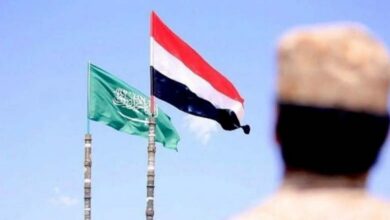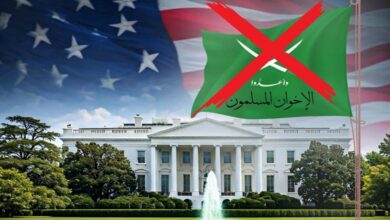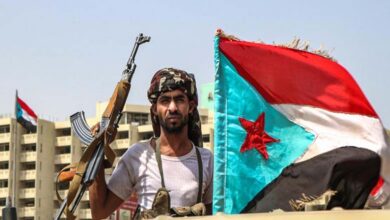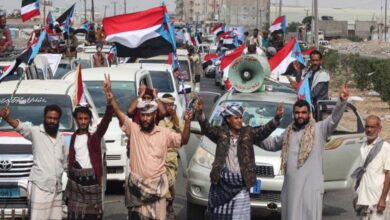Western Concerns over Iranian Rapprochement with Sudanese Army

A Sudanese diplomat anticipates that closer ties with Iran will negatively impact the country and further isolate the Sudanese army internationally, especially as the West is currently in clear opposition to Tehran
The growing proximity between the Sudanese army and Iran has raised concerns in the West. Western media outlets have warned about the dangers of this rapprochement, stating that it could further inflame tensions and turn Sudan into a proxy battleground for competing foreign powers vying for control over the Red Sea.
A Sudanese diplomatic source suggested that the Sudanese Ministry of Foreign Affairs, under the army’s authority, has seized the current opportunity to foster closer ties with Iran without a strategic vision. The source noted the surprising shift in the army’s position, as Sudan was previously engaged in fighting Houthi militias in Yemen, Iranian allies, yet now seeks to mend diplomatic relations with Iran amid its dire circumstances due to the ongoing war.
The source emphasized that Sudan’s alignment with Iran at this juncture, particularly amidst the conflict in Gaza, will further isolate the Sudanese army from the international community. This is compounded by the West’s current hostility towards Iran, stemming from disruptions to navigation in the Red Sea by groups such as the Houthis, as part of the ongoing regional conflict.
The Sudanese diplomat stressed that the Sudan-Iran rapprochement will have negative consequences and impacts on the country, potentially prolonging the military conflict by hindering Western efforts to address the crisis in Sudan while subjecting the army to Western pressure.
In October last year, the Sudanese and Iranian foreign ministries announced in a joint statement their intention to resume political and diplomatic relations for the mutual benefit of both countries, following high-level contacts between officials from both sides in recent months.
Following Western concerns over the Sudanese-Iranian rapprochement, Sudanese Foreign Minister Ali Al-Sadiq met two days ago with accredited and resident ambassadors in the country.
Al-Sadiq clarified in the meeting that “resuming relations between Sudan and Iran is normal and raises no questions, as relations were severed and have been restored, which is natural between countries in diplomatic relations,” according to the Sudan News Agency.
He affirmed that Sudan’s relations with Iran are not directed against any country, group of countries, or existing regional or international system in the region.
He explained that the bilateral relations between the two countries are natural and ordinary in state-to-state relations, representing a resumption of previous cooperation in economic, developmental, and investment areas between the two nations.
Control over the Red Sea
In this context, journalist and political analyst Alaeldin Babiker stated that the Sudan-Iran rapprochement comes in the context of seeking alliances to obtain military supplies for the Sudanese army.
Babiker pointed out that Iran is an ally of the Muslim Brotherhood, and that the Sudanese army‘s war against the Rapid Support Forces is essentially a war of the Muslim Brotherhood.
He emphasized that Iran is prepared to support the Sudanese army in its war against the Rapid Support Forces to gain a foothold in Sudan, allowing it to control the Red Sea region and thus dominate shipping lanes, similar to its current disruption of the region through its Houthi proxies.
On Friday, Ietizaz Youssef, the Qatari director of the International Rescue Committee in Sudan, stated that the attacks by Houthi militias on ships in the Red Sea had hindered vital aid shipments to Sudan, increasing costs for humanitarian agencies and putting millions at risk of famine.
Houthi attacks have forced ships carrying aid from Asia to Port Sudan to sail around Africa and across the Mediterranean Sea before entering the Red Sea via the Suez Canal from the north, resulting in significant delays and additional costs, according to Ietizaz Youssef.
In January, the American site “Bloomberg” revealed direct Iranian involvement in the ongoing military conflict in Sudan, confirming that Iran was fueling the conflict in the country and threatening stability in the region.
A report published by the site indicated that Iran had directly intervened in the ongoing conflict in Sudan between the Sudanese army and the Rapid Support Forces, openly supporting the Sudanese army by providing it with drones.
It added that Iranian drones “Mohajer-6” had become the latest tool fueling the catastrophic civil war that has displaced millions of Sudanese and endangered regional stability.
On January 28, the Sudanese Rapid Support Forces announced the downing of a third Iranian “Mohajer-6” drone in the Omdurman region.
The Rapid Support Forces had previously announced on January 6 that they had shot down the first Iranian “Mohajer-6” drones east of the capital Khartoum, broadcasting images and videos of soldiers holding anti-aircraft missile systems as the Iranian drone fell and its debris scattered in the area.












